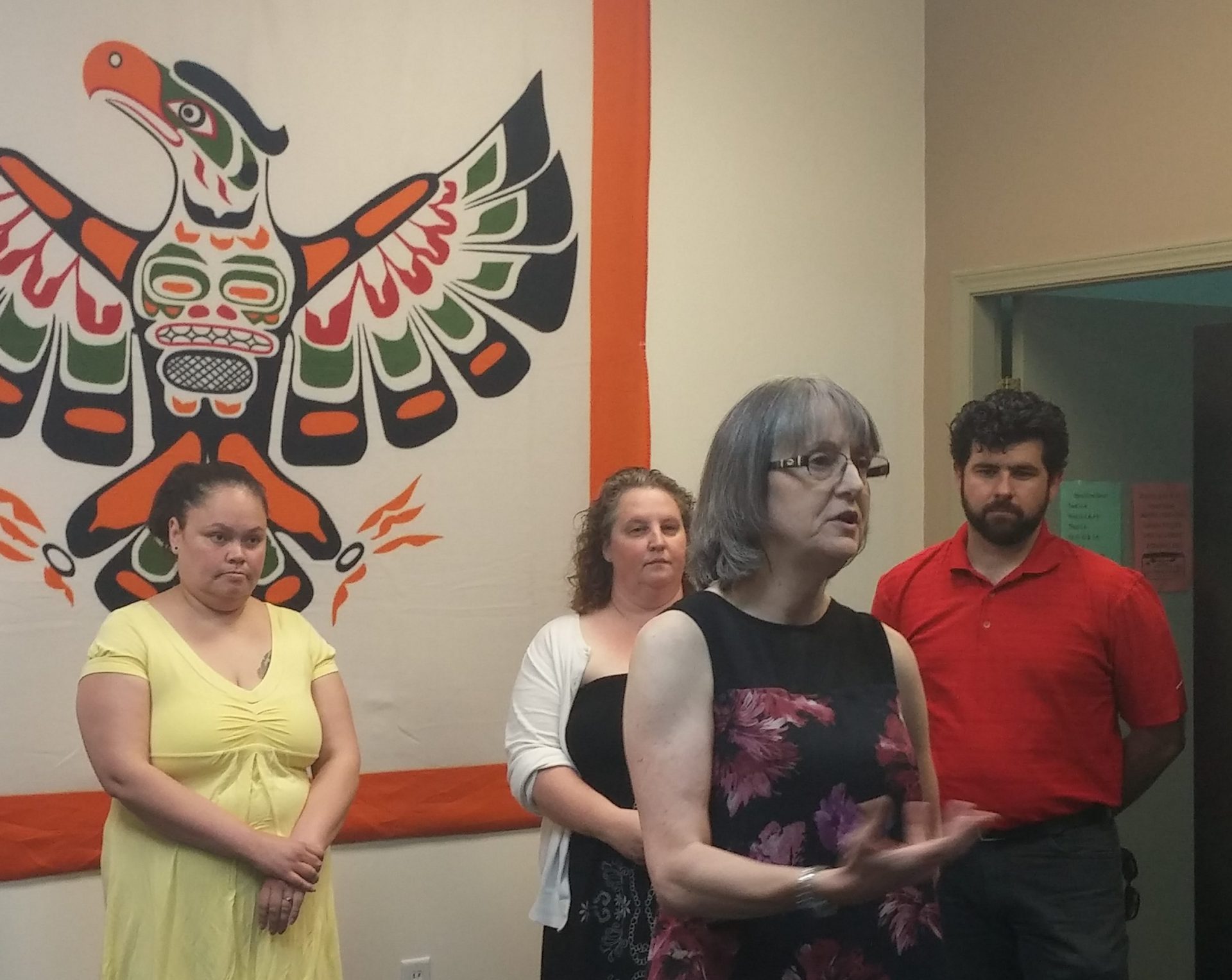A local research project is making a big impact on the lives of people with mental health challenges.
Dr. Candida Graham helped launch the project three years ago with Northern Health and the Activity Centre for Empowerment. She and other volunteer health professionals consulted mental health service users about what kinds of support they need to improve their health.
People with mental illness have worse health outcomes and have high rates of diabetes, heart disease and stroke. These add up to a 20% shorter life span. Dr. Graham says the program seeks to collaborate with mental health service users to help improve their health. The first phase of the program focused on physical activity. The second phase is improving nutrition and reducing tobacco use.
“We ran the tobacco reduction and the nutrition together because we know that people with better diets are going to be more successful in giving up cigarette smoking as well. So, as researchers, we had that bit of information from the literature to bring into the programs to be able to help.”
Graham says suggestions from participants included ideas that she would never have thought of. For instance, the community kitchen was born out of participants wanting more social opportunities while learning new skills.
“It was about coming together to cook, have that socialization, learn new cooking skills and then have portions of food, not only to take home, but having that meal together for that connectivity.”

Participants also have access to personal nutrition counselling sessions.
“They’ve worked with our dietician to look at tailoring those sessions to their needs. And they also wanted this to be a Good Food Box distribution point. Local produce – they bring it into the ACE centre here and then we distribute it out.”
Registered dietician Elaine Pekel says access to fresh food is just one of many challenges the program’s participants face. Budgetary issues and stigma are common concerns.
“A lot of times, clients are eating solely at food banks so we’re talking about those realities. For some people, it’s acceptable to go to a foodbank. For other people it’s not acceptable so it’s about recognizing what’s acceptable to the client and working with that.”
Graham says the tobacco use reduction side of the program has also seen success, despite having the odds stacked against them. She says mental health service users smoke 44% of cigarettes sold in North America.
“This is a group that probably smokes about 60 cigarettes a day and that has gone down to 30 on average. Obviously, the goal is for people to stop smoking all together and we’ve had a number of individuals who have done that as well.”
Participants are counselled by peers who share similar experiences. Graham says, while smokers without mental health challenges often have to try to quit 8 times before seeing success, mental health service users may need to try up to 15 times before they are successful. She says being able to talk to others who have had similar experiences has encouraged participants to persevere in kicking their habit.
The program has had 70 participants since it began. Graham says the community kitchen sees groups of 20 to 25 people at time while smoking cessation groups are smaller, with 8-15 participants per session.
The best news is that the program is sustainable. Funded by the Vancouver Foundation, the program enjoys support from Northern Health and the BC Schizophrenia Society. Current community partners include the YMCA of Northern BC, and have featured Youth Around Prince George, Chinook Yoga and the Charles Jago Northern Sport Centre at UNBC.
“This is Prince George. It’s an amazing place that people offer their time because they realize the benefits that are happening.”
Graham says they’re always looking for more helping hands so if you’ve got cooking or food preparation skills you’d like to share, even for a single session, you can get in touch with ACE.
There’s currently no third phase in the works but Graham says the success of the program in Prince George has lead to discussion about expanding the program across Northern Health.
Something going on in the Prince George area you think people should know about?
Send us a news tip by emailing [email protected].







